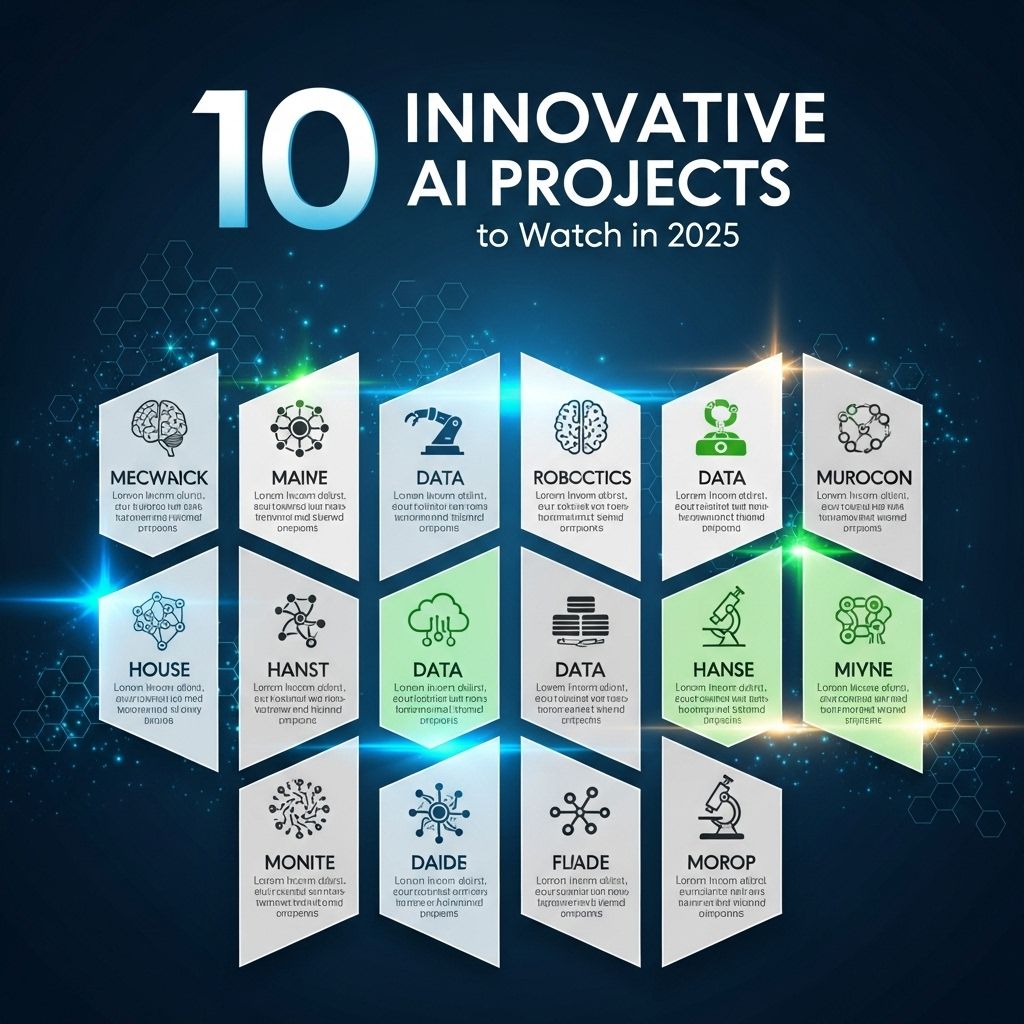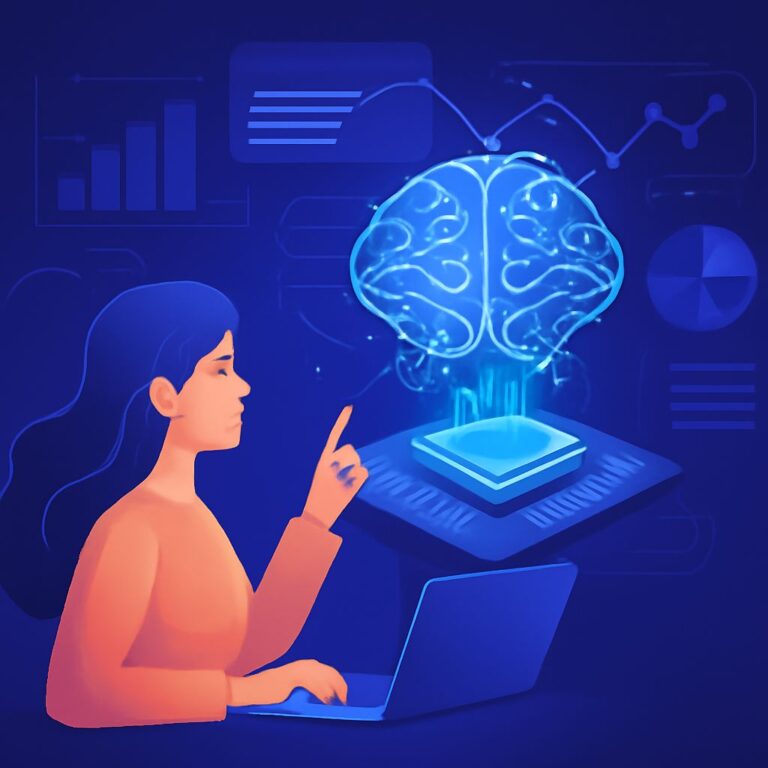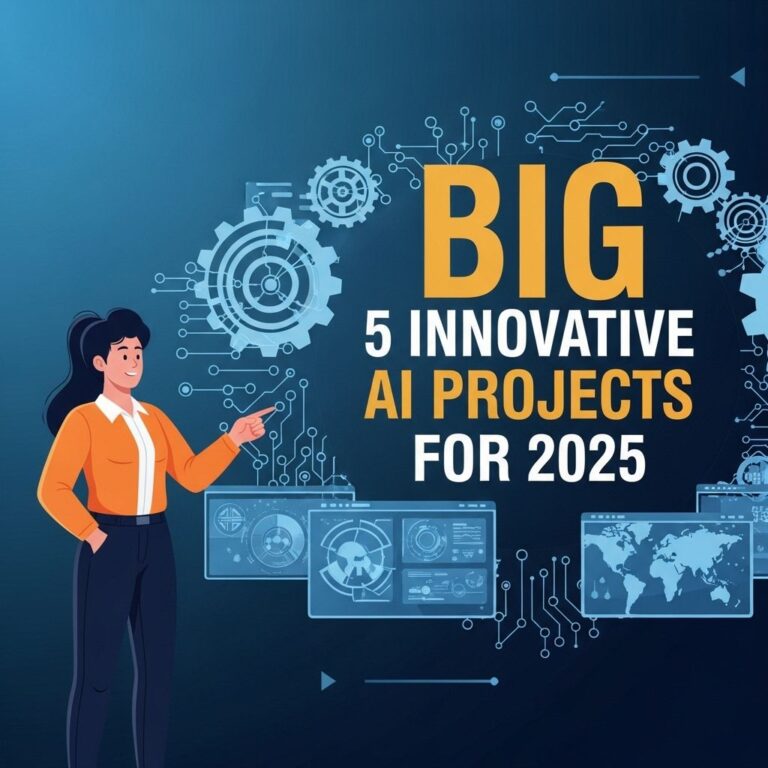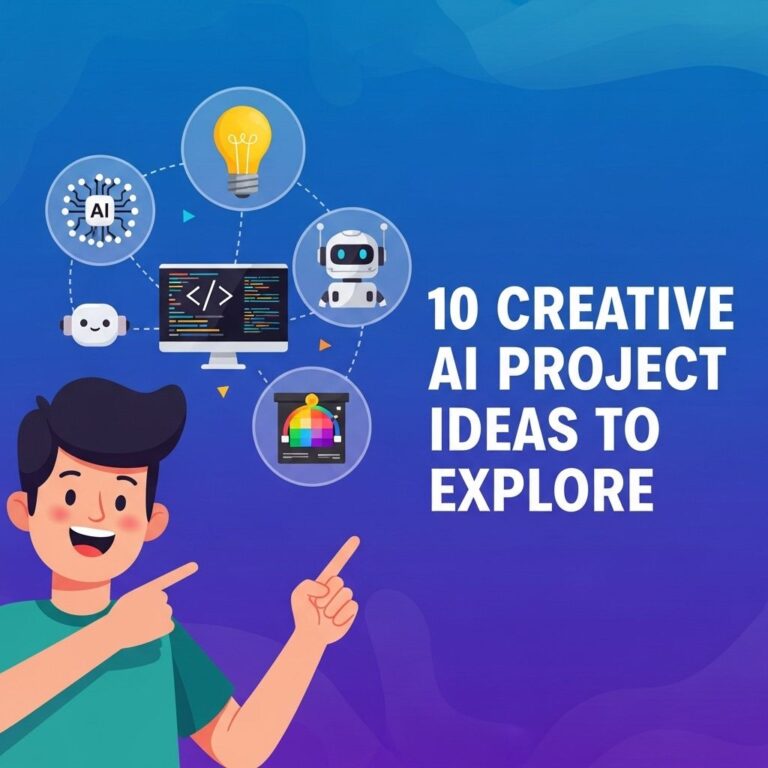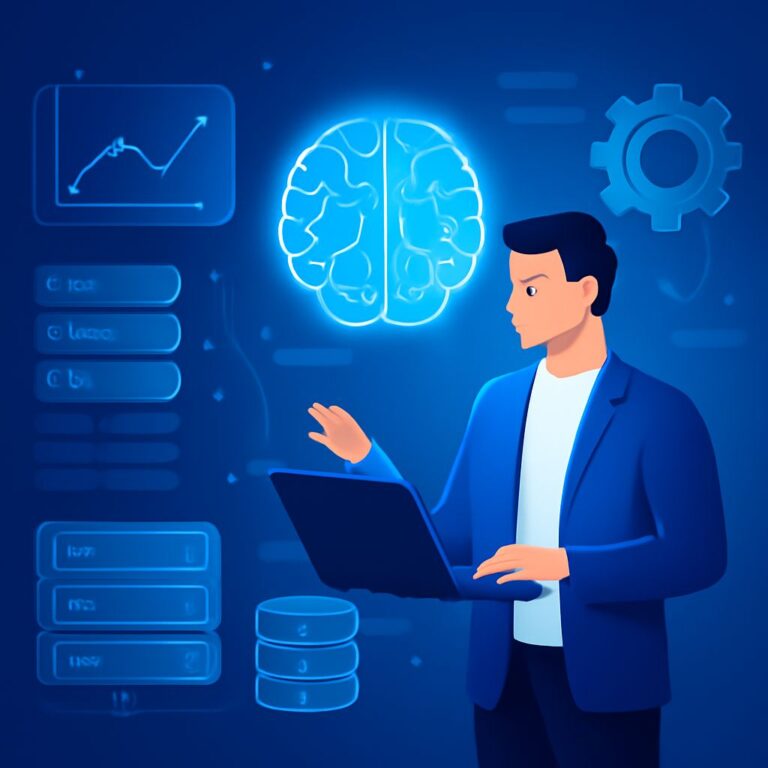As artificial intelligence (AI) continues to reshape industries and improve our daily lives, the landscape is brimming with innovative projects that promise to take this technology to new heights. In 2025, we can expect to see a plethora of groundbreaking AI initiatives that push the boundaries of what we currently deem possible. This article explores ten of the most exciting AI projects to watch, each showcasing unique applications and approaches that could define the future of technology.
Table of Contents
1. Autonomous Urban Transportation
As cities become increasingly congested, the need for efficient transportation solutions is paramount. Several AI projects are focusing on autonomous vehicles and urban transportation systems. These projects aim to reduce traffic congestion, improve safety, and enhance mobility.
Key Features:
- AI-driven traffic management systems that dynamically adjust traffic signals based on real-time data.
- Autonomous shuttles that operate in urban areas, providing on-demand services.
- Integration with public transport to provide seamless travel experiences.
Potential Impact:
By 2025, these innovations could pave the way for smarter cities, reducing emissions and improving the quality of urban life.
2. AI-Powered Healthcare Diagnostics
The healthcare industry is undergoing a transformation with the introduction of AI technologies that enhance diagnostic accuracy and patient care. Projects focused on AI in diagnostics are leveraging vast amounts of medical data to assist healthcare professionals.
Applications:
- Machine learning algorithms that analyze medical imaging for early disease detection.
- Natural language processing tools that can interpret clinical notes and patient history.
- AI systems that predict patient outcomes based on historical data.
Advancements:
These advancements promise to reduce diagnostic errors, expedite treatment plans, and ultimately save lives.
3. AI Ethics and Governance
As AI technologies proliferate, the need for ethical frameworks and governance models becomes increasingly vital. Projects focused on AI ethics are addressing the challenges posed by biased algorithms, data privacy, and accountability.
Core Objectives:
- Developing transparent AI systems that can be audited and understood by users.
- Creating guidelines for ethical AI usage in various sectors.
- Fostering collaboration between governments, industry leaders, and ethicists.
Long-term Vision:
By 2025, these efforts could lead to a more responsible and equitable use of AI technologies worldwide.
4. AI-Enhanced Cybersecurity
With the increasing threat of cyberattacks, innovative AI projects aimed at enhancing cybersecurity are gaining traction. These systems utilize machine learning to detect and mitigate threats in real-time.
Features:
- AI algorithms that analyze network behavior to identify anomalies.
- Automated threat response systems that act faster than human operators.
- Predictive analytics to foresee potential vulnerabilities.
Significance:
AI-enhanced cybersecurity could drastically reduce the risk of data breaches and protect sensitive information.
5. Personalized Learning with AI
The education sector is leveraging AI to create personalized learning experiences that cater to individual student needs. Projects are focused on developing AI-driven platforms that adapt to different learning styles and paces.
Components:
- Intelligent tutoring systems that provide customized feedback.
- Data analytics to track student progress and identify areas for improvement.
- AI tools that suggest resources based on learning preferences.
Future Implications:
By 2025, personalized learning powered by AI could revolutionize education, making it more inclusive and effective.
6. AI for Sustainable Agriculture
As the global population continues to grow, sustainable agriculture practices are more crucial than ever. AI projects aimed at optimizing farming techniques hold the potential to increase yields while minimizing environmental impact.
Innovative Techniques:
- AI-driven crop monitoring systems that use drones to assess field conditions.
- Precision agriculture technologies that analyze soil health and optimize resource usage.
- Predictive analytics for crop disease management.
Environmental Benefits:
These projects could lead to more sustainable food production methods, ensuring food security for future generations.
7. AI in Creative Arts
The intersection of AI and the creative arts is a fascinating area of innovation. Projects exploring how AI can assist or collaborate with artists are emerging, challenging traditional notions of creativity.
Applications:
- AI-generated music and art that blend human creativity with machine learning.
- Tools that aid writers in generating content or storytelling.
- Collaborative platforms where AI serves as a creative partner.
Impact on the Arts:
By 2025, these innovations may redefine artistic expression and the role of creatives in the digital age.
8. AI-Driven Climate Change Solutions
Climate change poses one of the most significant challenges of our time. AI projects focused on climate solutions aim to model environmental changes and propose actionable strategies.
Key Initiatives:
- AI models that predict climate patterns and their effects on ecosystems.
- Data analysis to optimize renewable energy production and distribution.
- AI tools that assist in climate-related policy development.
Long-term Goals:
Innovations in this field could help mitigate the impacts of climate change and promote sustainable practices globally.
9. Smart Assistants and Home Automation
The rise of smart home technology has been fueled by AI advancements. Projects focusing on smart assistants are making homes more intuitive and efficient.
Features:
- Voice-controlled home automation systems that learn user preferences.
- AI algorithms that optimize energy usage and automate routines.
- Integration with IoT devices for seamless home management.
Future Perspectives:
By 2025, smart homes could become the norm, enhancing convenience and sustainability for homeowners.
10. AI for Enhanced Customer Experience
Businesses are increasingly turning to AI to enhance customer experiences. Projects that utilize AI for personalized interactions are transforming how companies engage with their customers.
Strategies:
- AI chatbots that provide 24/7 customer support.
- Predictive analytics to anticipate customer needs and preferences.
- Sentiment analysis tools that gauge customer feedback in real-time.
Business Impact:
These initiatives could lead to stronger customer relationships and improved brand loyalty.
Conclusion
The future of AI is promising, with innovative projects across a wide range of sectors set to reshape our world by 2025. From enhancing healthcare and education to addressing climate change and revolutionizing the arts, the applications of AI are vast and varied. As these technologies continue to evolve, they hold the potential to create a more efficient, sustainable, and equitable future for all.
FAQ
What are some upcoming AI projects to watch in 2025?
In 2025, expect to see innovative AI projects in areas like healthcare diagnostics, automated content creation, and smart city technologies.
How will AI impact the job market by 2025?
By 2025, AI is expected to transform the job market, automating routine tasks while creating new roles focused on AI management and ethical oversight.
What industries are most likely to be transformed by AI in 2025?
Industries such as healthcare, finance, manufacturing, and transportation are likely to experience significant transformations due to AI advancements in 2025.
What role does AI play in sustainability efforts by 2025?
AI is anticipated to play a crucial role in sustainability efforts by optimizing resource use, enhancing energy efficiency, and improving environmental monitoring.
What ethical considerations surround AI development in 2025?
As AI technology advances, ethical considerations such as data privacy, algorithmic bias, and accountability will be critical discussions in 2025.
How can businesses prepare for AI innovations in 2025?
Businesses can prepare by investing in AI training for employees, adopting flexible technologies, and staying informed about AI trends and regulations.

